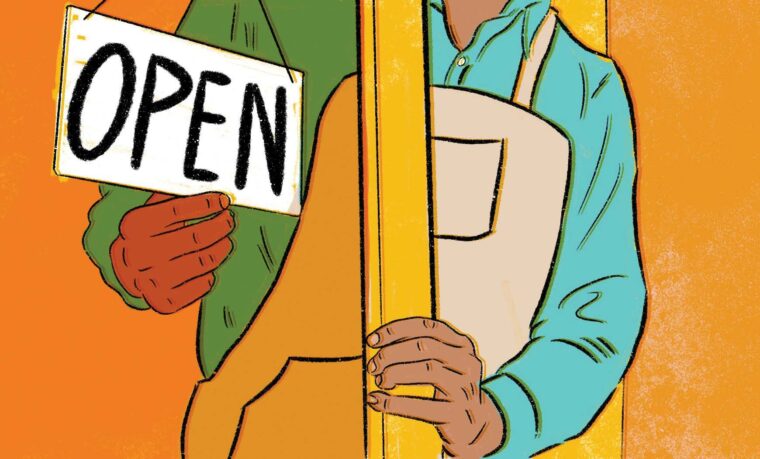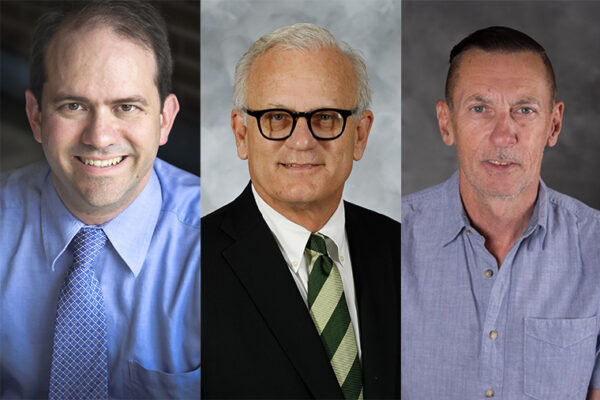In May 2020, several business owners in St. Louis formed the STL Small Business Task Force to respond to the COVID-19 pandemic. The organizers invited Glenn MacDonald, the John M. Olin Distinguished Professor of Economics and Strategy at Olin Business School, to join.
MacDonald, who has extensive experience in -business consulting with large corporations, startups and -nonprofits, got an idea: “I have these fantastic -students, and many have lost their internships or -summer employment. … What an opportunity!”
In their first year, Olin Business School students begin to learn about business consulting, and MacDonald teaches a capstone course for seniors, “Research and Industry Analysis.” In it, the students do research and tackle five real consulting projects with senior executives from smaller companies located around the country.
MacDonald reached out to two of his teaching assistants, Alivia Kaplan, Class of 2022, and senior Valentina Pariente Monalli, Class of 2021, and about 300 of his former students. More than 50 of them, from first-year students to recent graduates, volunteered to help. The task force provided seven local small-business clients for the student teams.
Kaplan acted as project manager while Pariente Monalli helped the students with the consulting work and their presentations to the businesses.
“There was a common theme of hesitation at the beginning of the consulting process for the teams,” Pariente Monalli recalls. “But as they asked me more questions and were able to adapt their thinking, members of each group gained confidence.”
The students had only about two weeks to meet with the client, conduct research, tell the client what the real issues were and present their recommendations. Especially for students who had not taken MacDonald’s capstone, the experience was eye-opening.
“They’re so used to me giving them a clearly posed problem and then working on it and giving me an answer,” MacDonald says. “With consulting work, it’s initially never clear what the situation is. In fact, figuring that out is often much of the path to the conclusions.”
Recommendations included what to do with spaces that were idle or in limited use, how best to get customers to social distance while enhancing their experience, how to deal with government guidelines that were constantly changing and not well-crafted for particular businesses, and new product and marketing strategies created by the pandemic. The businesses were impressed, and several said they would implement every suggestion the students made. “They were terrific clients and incredibly receptive,” MacDonald says.
Working on the project led Kaplan to found Kuleana Consulting, a student-led, free consulting service for social impact–focused businesses. Pariente Monalli is also involved, and MacDonald is supporting the students with advice and mentorship.
The Center for Research in Economics and Strategy, which MacDonald directs, partnered with the Koch Center for Family Business at Olin to offer participating students a small honorarium for their consulting work. There were also prizes for the top three presentations. But the primary reward for the students was the experience, while MacDonald saw it as an opportunity for the university to help the St. Louis small-business community.
“We’re not just occupying space in St. Louis,” MacDonald says. “We’re an important St. Louis institution. This is my way, on behalf of the university, to support the St. Louis small-business community during a difficult time.”



